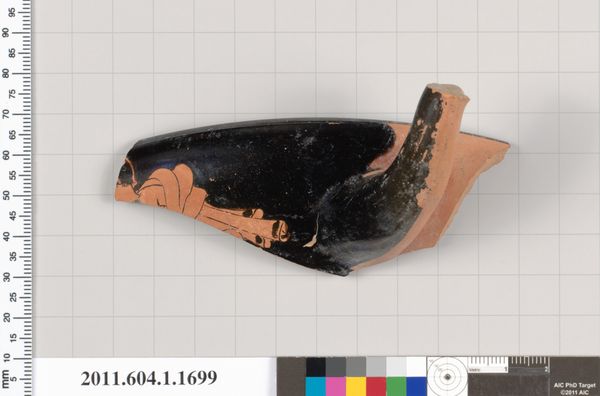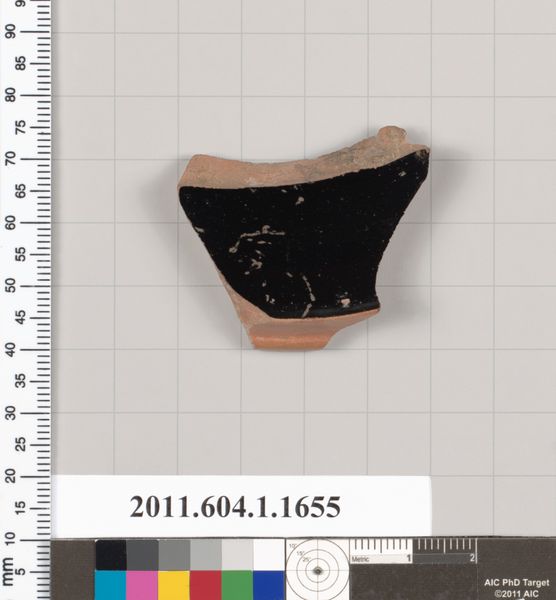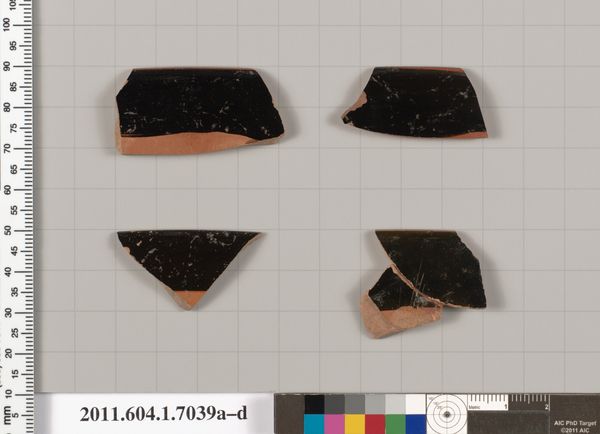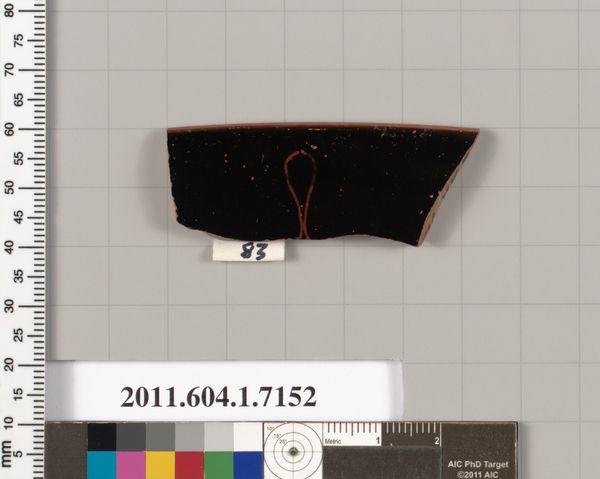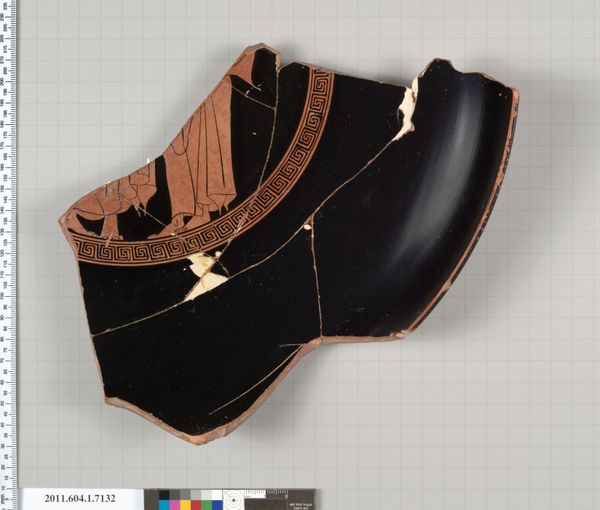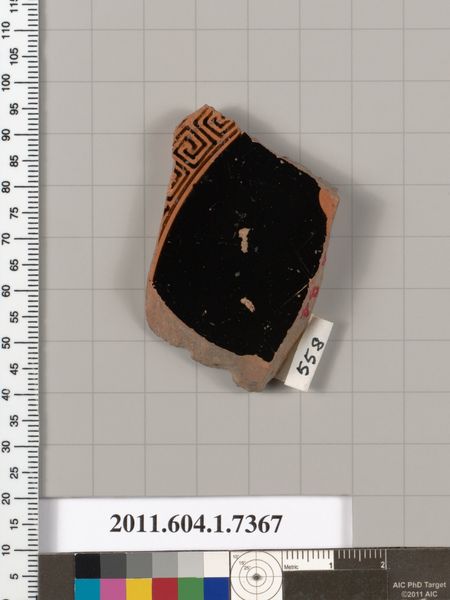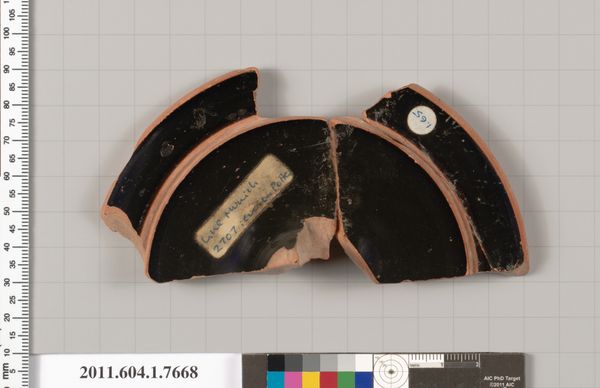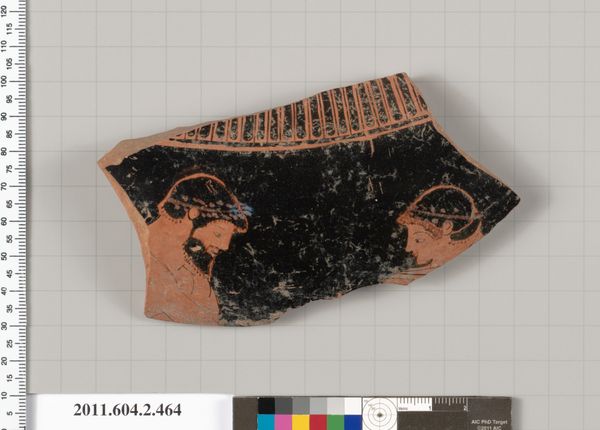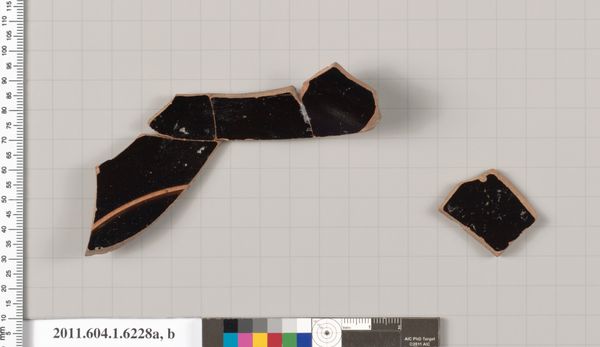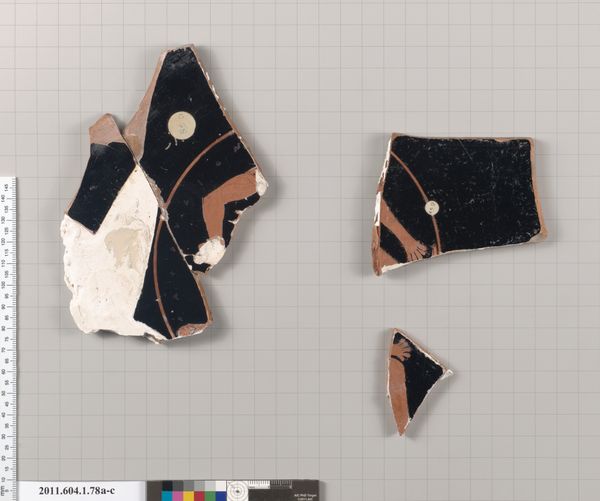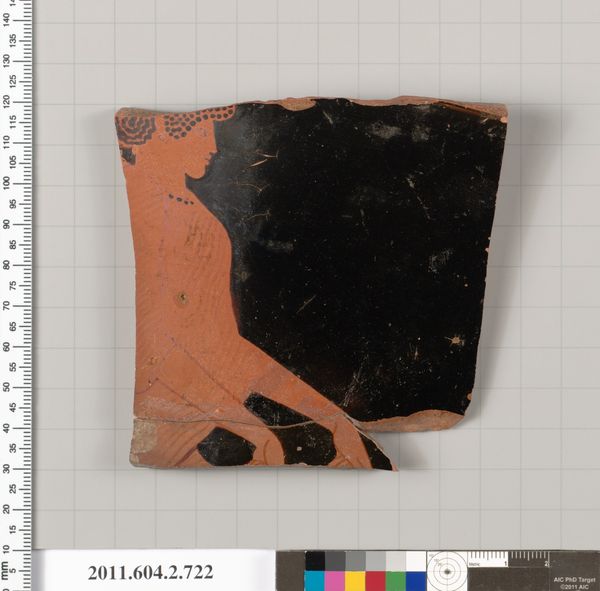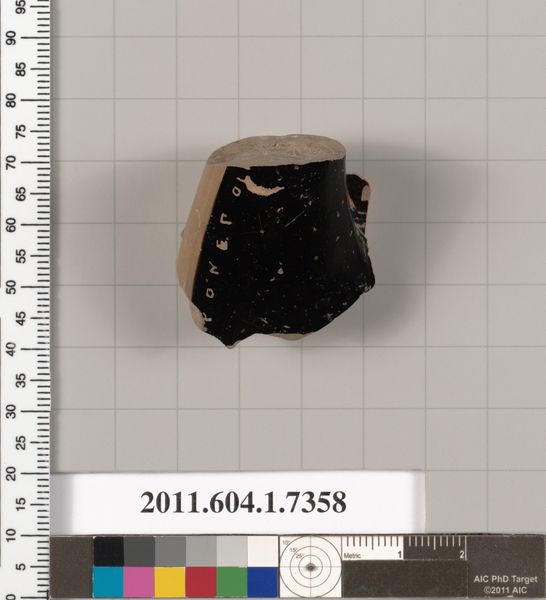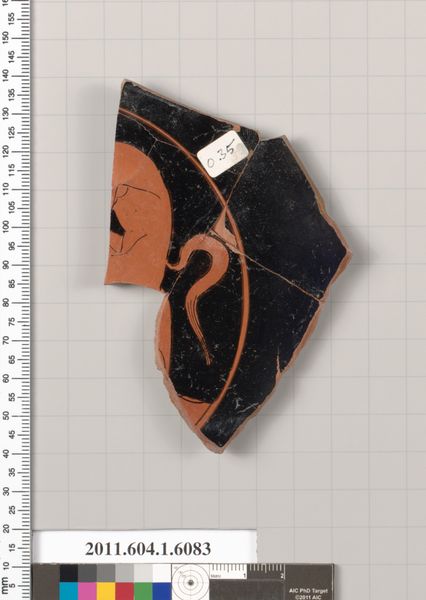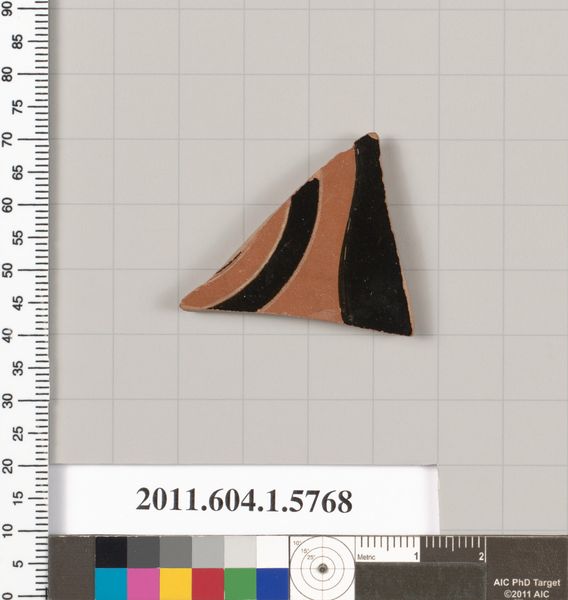
drawing, ceramic, terracotta
#
drawing
#
greek-and-roman-art
#
ceramic
#
vase
#
roman-art
#
ancient-mediterranean
#
terracotta
Copyright: Public Domain
Editor: This is a terracotta fragment of a kylix, a drinking cup, dating back to 500 BC. It’s currently housed at the Metropolitan Museum of Art. It's just a piece, really, mostly black with some banding. How do you interpret this work? Curator: Well, immediately, I see a powerful symbol of cultural endurance and loss. It's a fragment, yes, but it speaks volumes about the rituals, social structures, and gender dynamics of ancient Greek society. Kylixes like this weren't just functional objects. They were central to symposia – gatherings of men, where they drank, debated, and forged political alliances. Think about who was excluded from that space and the stories that were never recorded on these vessels. Does that give you pause about celebrating this craft as a simple artifact? Editor: I hadn’t considered the limitations of whose voices were represented. Curator: Exactly. So, while the craftsmanship is remarkable, consider how the scenes depicted—likely mythical or heroic narratives—reinforced existing power structures. Were women, enslaved people, or foreigners typically centered in the stories decorating these cups? Unlikely. So, what does it mean to hold and admire a piece like this today, knowing its historical context? Editor: It challenges us to be critical about what we celebrate from the past. Even something as seemingly simple as a drinking cup becomes a site of complex social and political narratives. Curator: Precisely. It’s a conversation starter, not just a relic. Seeing this fragment not only connects us to the past but compels us to reflect on the silences and exclusions inherent in that past, and how they resonate today.
Comments
No comments
Be the first to comment and join the conversation on the ultimate creative platform.
